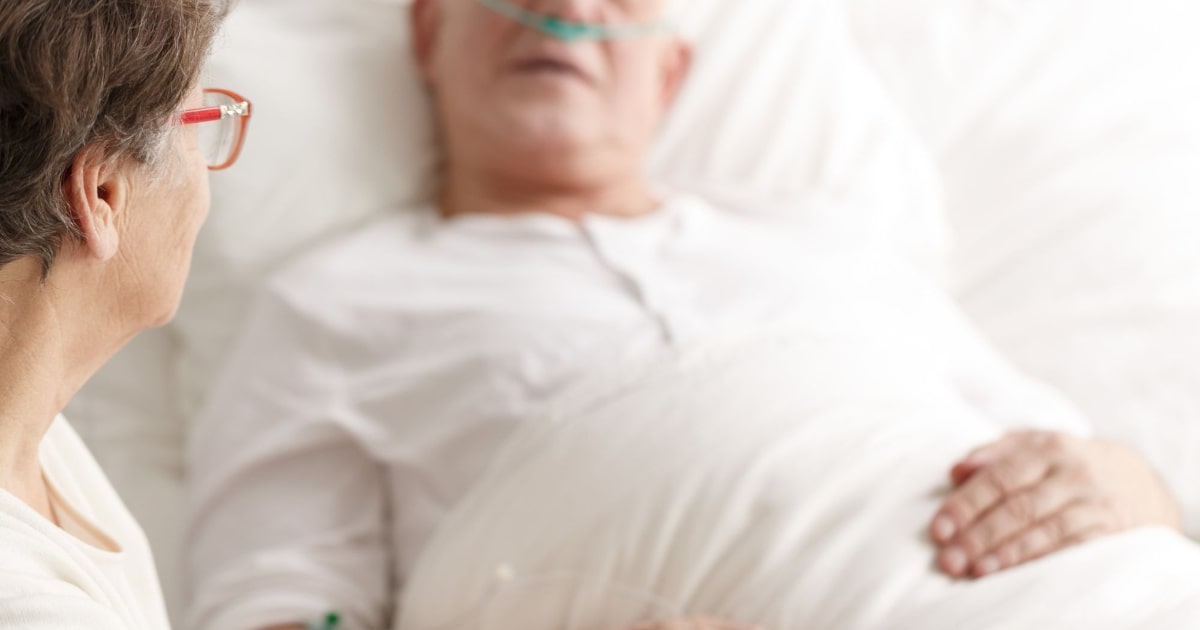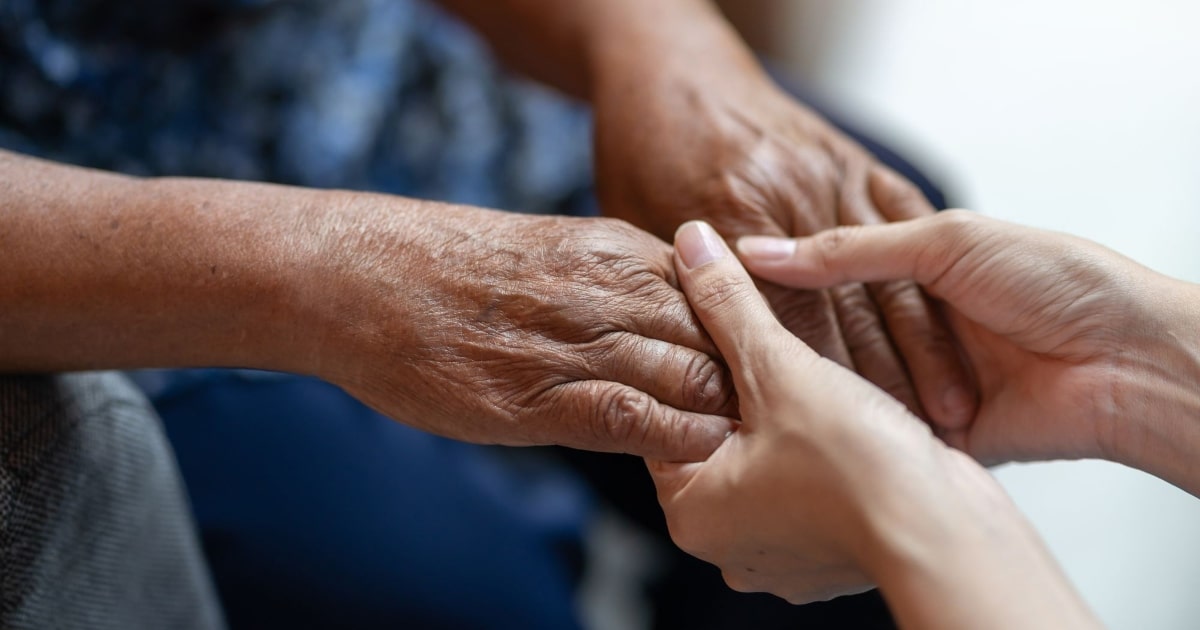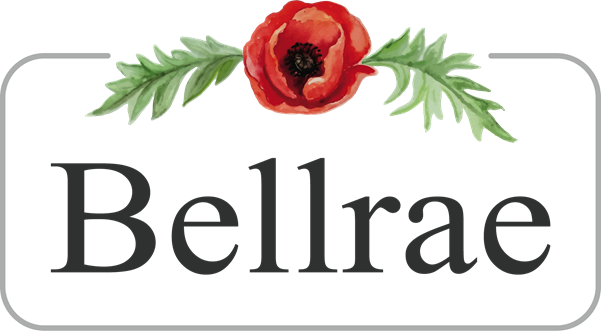In recent years, there has been a growing shift in how we approach death and dying. As more people seek compassionate, personalised experiences during life’s final stages and move away from traditional funerals, alternative and holistic support roles have emerged. Among these emerging forms of support is the death doula.
But what exactly is a death doula, and why are more people turning to their services? In this article, we explore what an end of life doula is, what they do, and how they reflect a broader shift in how we talk about and prepare for death.
What is a death doula?
A death doula is a non-medical support person who provides emotional and practical care to someone approaching the end of life. Their primary role is to provide emotional, spiritual, and practical support, not clinical or legal services. They may also be called an end-of-life doula, death midwife or a non-medical end-of-life carer.
Although the term “doula” is often linked to childbirth, a death doula provides similar guidance and support during the final stages of life.
While a birth doula supports individuals through labour and delivery, a death doula helps guide people through the dying process with dignity.
Why are death doulas becoming more common?
The growing visibility of death doulas reflects changing attitudes towards death and dying. Many people with terminal illness prefer to die at home or in a familiar setting, surrounded by loved ones, rather than in a hospital.

Death doulas can offer companionship for those facing the end of life alone, especially as social isolation becomes more common. They may help bridge the gap between medical care, funeral services, and the emotional support often missing when someone has no nearby family or community network.
This rise is also influenced by the growing “death-positive” movement, a cultural shift that encourages open conversations about mortality, dying, and grief. As more people plan for end-of-life experiences on their terms, the demand for spiritual support services like death doulas continues to grow.
What does a death doula do, and not do?
As this is a relatively new role, the specifics may vary depending on the person, as there is no standardisation in this newly emerging industry. That said, the role is to provide support to the dying person and their loved ones.
What they can do:
- Offer non-medical emotional support and companionship to the dying person.
- Help families prepare for and process the dying process.
- Provide a calming, reassuring presence.
- Assist with light, practical tasks related to comfort and setting up the space.
- Can be present before, during, and immediately after death, if requested.

What they do not (and should not) do:
- Administer medications, perform wound care, or provide clinical advice.
- Provide after-death care or make recommendations for handling the deceased, as they are not trained in this area.
- Perform embalming, body preparation, or offer advice on these matters.
- Replace medical professionals or palliative care and hospice services.
- Make legal, financial, or estate planning decisions.
- Sign death certificates or complete legal documentation. A funeral director must handle this.
If you’re engaging a death doula to support you or a loved one through the dying process, it’s important to remember that their role is not a replacement for a funeral director. Death doulas provide compassionate, non-medical support to help you honour the experience in your way, often within the home. However, their expertise does not extend to the legal and practical requirements following death.
Key tasks like registering the death, arranging for the body’s transport, and ensuring lawful disposition must be handled by a licensed funeral director. Trying to manage these steps alone can be overwhelming, time-consuming, and often more costly in the long run. A funeral director is still required to care for the deceased until burial or cremation, as it is not legally or practically possible for the body to remain at home indefinitely.
– Paula Bell
Owner and Qualified Embalmer, Bellrae
Who can become a death doula?
Unlike clinical professionals, anyone can become a death doula, as there are no formal qualifications or licensing requirements. People often enter this field through their lived experience or careers in aged care, counselling, or community support.
While independent training programs are available, they are not nationally accredited, and there is no minimum training standard. This means that the end of life doula industry is not regulated, and doulas are not registered under any professional body.
As a result:
- Anyone can call themselves a death doula.
- There is no regulation or industry body overseeing practice or ethics.
- Training, services, and pricing can vary widely, with no standard approach.
- The quality of support can vary significantly depending on the doula’s training and experience.
This contrasts with regulated fields, such as nursing, medicine, or licensed mortuary professionals, which require strict licensing, accountability, and adherence to national standards. As a result, the quality and professionalism of death doula services can vary greatly.
While many doulas work with deep care and integrity, families should approach this service with awareness and caution. It is essential to ask questions and confirm that the doula’s experience and approach align with your needs.
Questions to ask before choosing an end-of-life doula
Because there are no licensing or registration standards, families should ask clear, practical questions before engaging a death doula:
- What experience do you have in end-of-life care?
- What training have you completed?
- What specific services do you offer—and what don’t you offer?
- How do you work with other professionals, such as palliative care nurses or funeral directors?
- Have you supported individuals in similar settings?
- Are your services covered by insurance, or do you hold any professional liability cover?
- What are your fees and terms of service?
- What is your availability? Do you offer overnight respite?
- Can you provide references or testimonials from other families you’ve supported?
These questions help clarify expectations and ensure the support aligns with your family’s needs and values.
End-of-life conversations
As discussions around death and dying continue to evolve, so too does the support available to those nearing the end of life. While they should not replace medical, legal, or mortuary care, a death doula may offer family members emotional support across the dying process.
However, due to the unregulated nature of the industry, it’s essential to do your due diligence before engaging their services. As with any service, asking the right questions and clarifying expectations is key to making the right choice for your loved one’s care.

If we can offer any advice or assistance, please don’t hesitate to contact us at Bellrae.
Have a question?
Our friendly team are hear to help. Reach out with any questions you may have and we'll be in touch to discuss.
